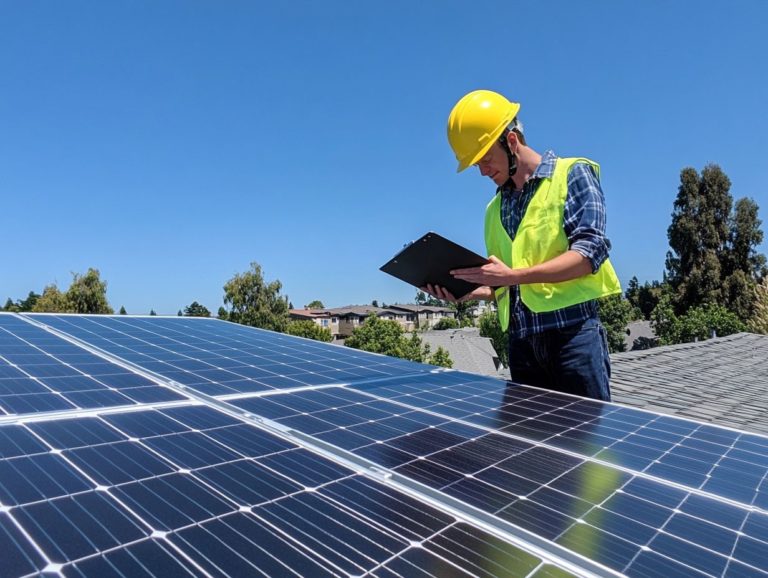What is a Smart Meter and How Does It Work?
Smart meters are revolutionizing energy consumption and management. These sophisticated devices track your electricity, gas, or water usage and deliver real-time data. This paves the way for enhanced efficiency and significant cost savings, including the integration of smart heating controls.
You will explore what smart meters are, how they function, and the myriad benefits they offer, especially in terms of energy savings. You will also examine common concerns about privacy and accessibility.
Understanding smart meters is vital for making informed decisions that contribute to a sustainable future. Discover how these amazing tools can change the way you consume energy!
Contents
Key Takeaways:
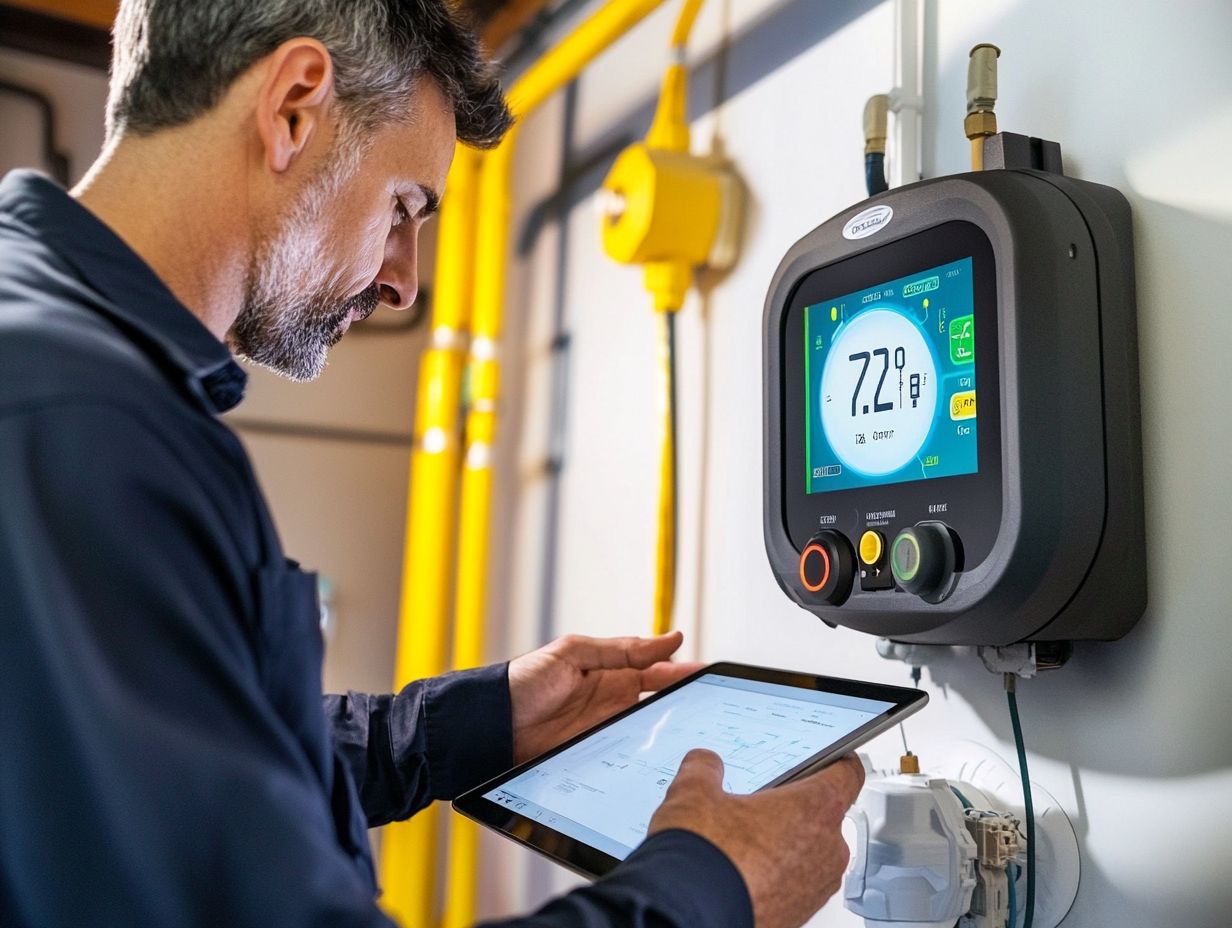
- Smart meters track your energy use in real-time, giving you accurate data that can save you money and help the environment.
- The installation and use of smart meters can greatly increase efficiency and potentially reduce electricity bills while positively impacting the environment.
- Smart meters use advanced technology to collect and transmit data, allowing for better energy management for both you and utility companies.
Unlocking the Power of Smart Meters
Smart meters are a remarkable advancement in energy management, offering real-time insights into your energy consumption, whether at home or running a business across England, Scotland, and Wales. They provide significant energy monitoring capabilities.
These devices empower you to monitor your energy usage effectively, allowing for informed decisions regarding energy costs and supporting the adoption of time-of-use billing.
By integrating advanced metering infrastructure with wireless communication, smart meter technology enhances interactions with energy suppliers. This plays a crucial role in reducing carbon footprints and optimizing the efficiency of the smart grid, improving customer service.
Definition and Function
A smart meter is your gateway to real-time insights into energy consumption. They enable you and utility companies to access detailed meter readings instantly.
Unlike traditional analog meters that require manual readings and provide only a limited snapshot of usage, smart meters transmit data wirelessly. This gives you a comprehensive view of your energy habits. For instance, if your household is equipped with these meters, you can monitor electricity usage throughout the day, pinpointing peak hours and discovering opportunities for savings.
This technology boosts your energy efficiency and empowers you to make informed decisions about consumption, such as choosing a pre-payment plan. Utility companies benefit too, gaining from improved load forecasting and reduced operational costs, allowing them to swiftly address outages and manage resources more effectively.
By fostering a greater awareness of energy usage, smart meters contribute to more sustainable consumption practices, allowing you to engage in home energy management.
Benefits of Smart Meters
Smart meters offer a wealth of benefits, fundamentally transforming how you engage with your energy consumption. They pave the way for enhanced energy efficiency and savings.
By providing real-time insights into energy usage, these devices empower you to make informed decisions about energy costs and significantly reduce your carbon footprint. This shift boosts personal savings through effective monitoring and plays a crucial role in a broader national energy reduction strategy, facilitated by energy suppliers.
Take the first step towards smarter energy use today!
Efficiency and Cost Savings
Smart meters elevate your energy efficiency and unlock significant cost savings. They allow you to track your energy consumption patterns and adjust your usage, enhancing your energy management capabilities.
These cutting-edge devices provide real-time data analytics. This enables you to pinpoint peak usage times and make informed decisions about when to operate high-energy appliances. For example, a study from a utility company in California showed that households with smart meters reduced their energy consumption by an average of 15%. This resulted in substantial reductions in monthly bills, illustrating the effectiveness of demand response strategies.
You can implement demand response strategies through smart technologies. These strategies encourage you to reduce or shift your electricity usage during peak demand times. This optimizes energy distribution and contributes to lower overall energy costs. Ultimately, this benefits both the environment and your wallet, reinforcing your commitment to energy efficiency.
Environmental Impact
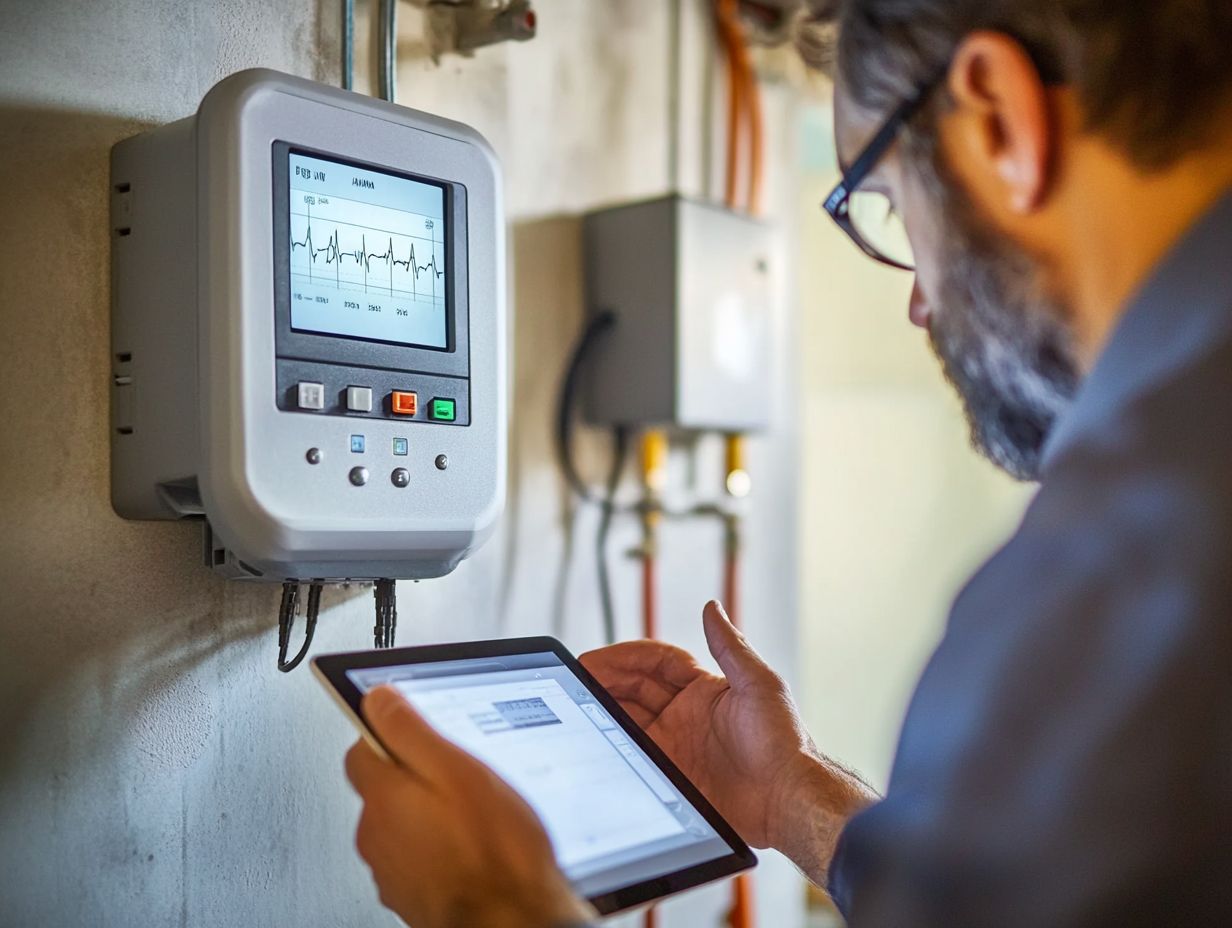
The adoption of smart meters is crucial for diminishing the carbon footprint linked to energy consumption. They pave the way for a more sustainable future through enhanced energy management and support for renewable energy sources.
These innovative devices equip you with real-time data on your energy usage. This lets you pinpoint peak consumption times and adjust your habits accordingly. By promoting energy efficiency, smart meters not only help you lower your bills but also support the integration of renewable energy sources into the grid, enriching your overall smart grid experience.
As you and your community adopt this technology, you actively participate in lowering greenhouse gas emissions and bolstering local sustainability initiatives. On a global scale, widespread smart meter adoption can lead to significant energy conservation, aligning with international agreements designed to combat climate change, like those promoted by the United Nations.
How Smart Meters Work
Smart meters operate through smart meter technology that connects to utilities. This enables two-way communication between the meter and utility companies, enhancing the accuracy of meter readings. This innovation transforms how energy data is managed, providing greater efficiency and insight.
Technology and Data Collection
Smart meter technology utilizes robust systems to collect real-time data from your electricity, gas, and water meters. This allows you to monitor your energy usage closely.
These advanced devices come equipped with sophisticated sensors. They track your energy consumption patterns and transmit this information through secure wireless communication networks to ensure data security. With the integration of the Internet of Things (IoT), which allows devices to connect and share data, you can enjoy seamless interaction between the meter and your personal interface. This gives you valuable insights into your energy habits.
However, this connectivity raises concerns about data security and privacy. To address these issues, stringent encryption protocols protect your sensitive information. Only authorized parties can access it. Manufacturers also follow industry best practices to mitigate risks, reassuring you that your personal data remains safe and secure.
Installation and Usage of Smart Meters
The installation of smart meters is a seamless process. Trained professionals from energy providers carry it out, ensuring efficient smart meter installation. This approach minimizes disruption to your daily life while significantly enhancing your energy management capabilities.
Act now to take control of your energy bills! Start using a smart meter today and see how you can save money while helping the environment!
Process and User Experience
Once you install your smart meter, you can engage seamlessly with it through in-home displays. These displays grant you instant access to meter readings and detailed energy monitoring capabilities, enhancing your home energy management system.
This interaction revolutionizes how you manage your energy consumption. With real-time data at your fingertips, you can identify peak usage times and track your energy trends over days or months.
The in-home display becomes an essential tool. It empowers you to make informed decisions about your energy usage like adjusting appliance use during off-peak hours or opting for energy-efficient models.
This proactive approach not only allows you to save on utility bills but also contributes to a more sustainable lifestyle. It fosters awareness of how your choices impact the environment and supports energy efficiency initiatives.
Concerns and Controversies Surrounding Smart Meters
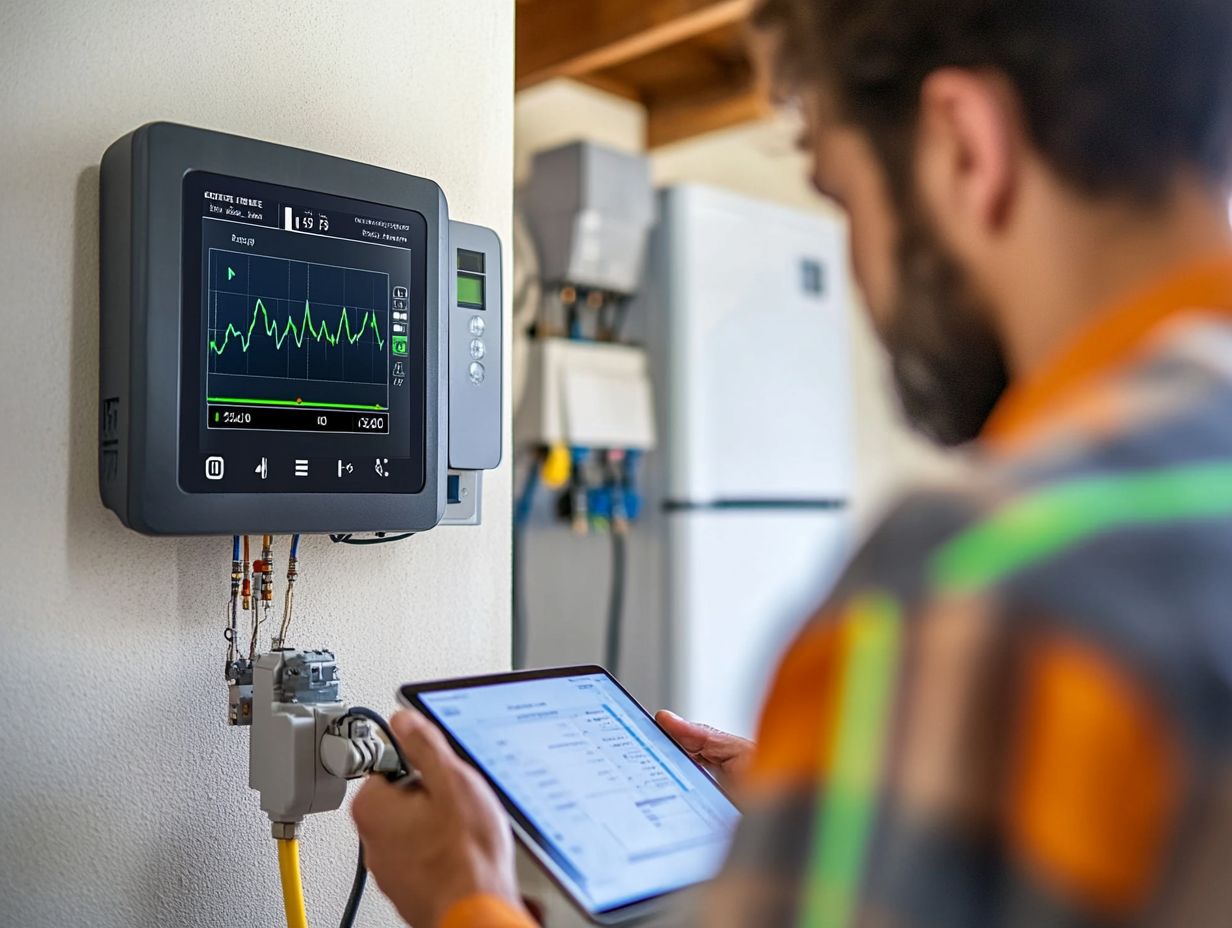
Even with their many advantages, smart meters come with a host of concerns and controversies. You should be aware of issues related to privacy, data security, and the accuracy of estimated bills generated by energy providers, which can be influenced by the Meter Point Administration Code.
Privacy and Security Issues
Privacy and security concerns surrounding smart meters arise from their continuous data transmission. This raises red flags about unauthorized access and potential misuse of sensitive consumer information, reinforcing the need for strong encryption methods.
These devices offer real-time insights into energy consumption. However, they also expose you to significant vulnerabilities if not adequately secured.
The automatic communication of usage patterns can provide cybercriminals with a treasure trove of information about your household habits. This potentially sets the stage for targeted attacks, emphasizing the importance of data security.
To mitigate these risks, manufacturers and utility companies have rolled out various encryption methods and authentication protocols. These are designed to protect the data being transmitted, including secure wireless communication networks.
Yet, a key challenge persists: how to strike a balance between reaping the rewards of this advanced technology and ensuring consumer privacy.
It s all about fostering trust while leveraging valuable data for energy efficiency initiatives, guided by organizations like Citizens Advice.
Costs and Accessibility
Smart meter installation costs can be a hurdle for many households. This is especially true when you consider worries about the accuracy of estimated bills from energy providers, particularly as they relate to energy tariffs.
These financial considerations can present significant challenges for households already working hard to make ends meet.
When weighing the decision to adopt smart meter technology, think beyond just the initial installation fees. These can vary quite a bit depending on where you live and your chosen provider. You ll also want to keep ongoing expenses in mind, such as maintenance and any potential service fees.
Energy providers must recognize the challenges lower-income households face with these costs!
As smart meter technology becomes more commonplace, it s vital to ensure that everyone has equitable access regardless of their financial situation. This will boost energy efficiency and foster fair billing practices.
The adoption of smart heating controls can also assist in reducing the carbon footprint of these households.
Frequently Asked Questions
For more information, you can contact your energy provider or consult resources from Citizens Advice.
What is a Smart Meter?
A Smart Meter is an electronic device that measures and records a building’s electricity usage in real-time data. It is typically installed by utility companies on homes and buildings as a replacement for traditional analog electricity meters and gas meters.
How does a Smart Meter work?
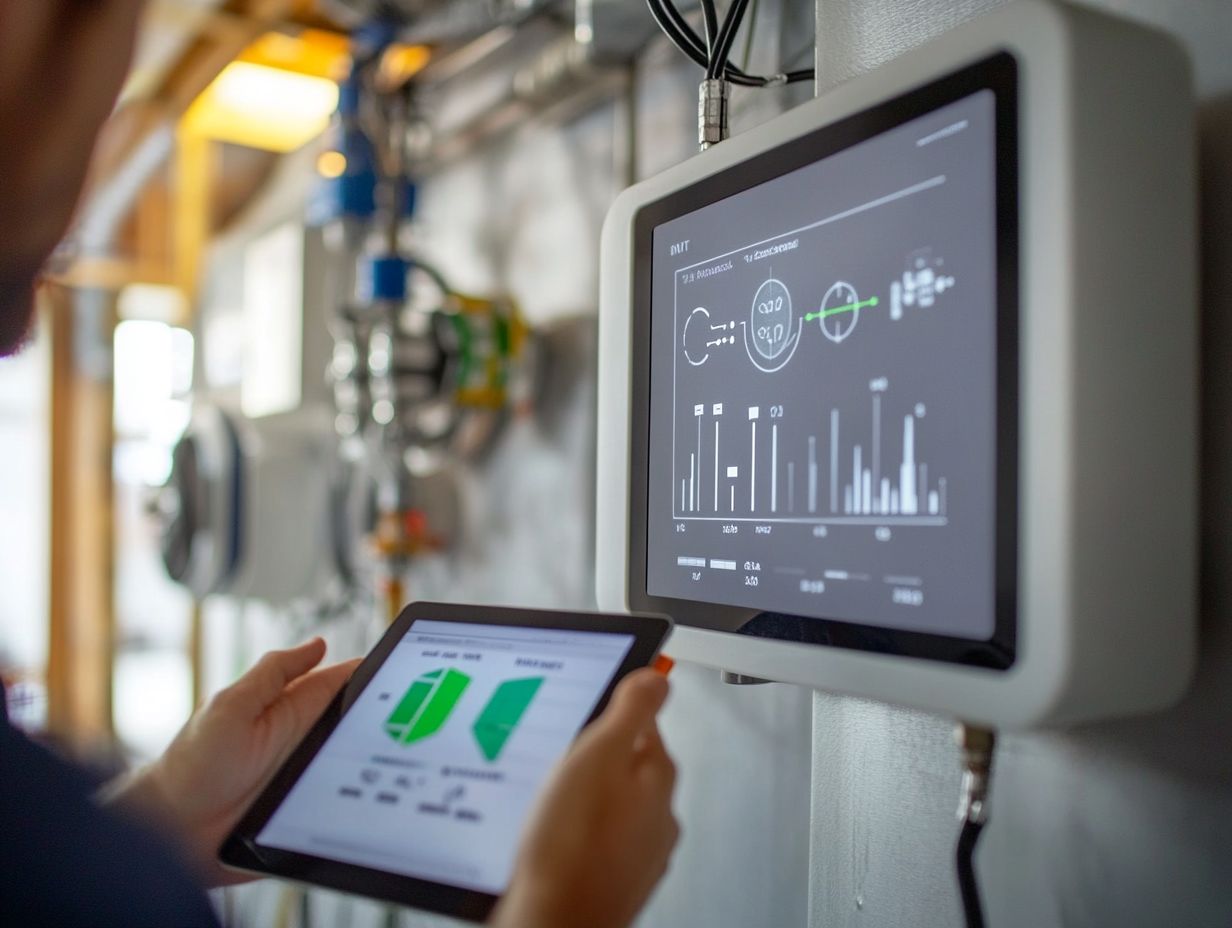
A Smart Meter uses technology that allows sending and receiving data from your utility company. It records your Energy Usage and sends this information back for billing.
What are the benefits of using a Smart Meter?
Here s why Smart Meters are great! They provide accurate billing and help you track your energy use. You can also save energy through special programs and incentives.
Do I need to do anything to use a Smart Meter?
No, once installed, a Smart Meter works automatically. Some energy suppliers may ask you to join online portals or energy monitoring programs to get the most from your Smart Meter.
Are Smart Meters safe?
Yes, regulatory agencies consider Smart Meters safe. They emit less radiation than common devices like cell phones. Smart Meters are installed by trained professionals, helping to protect your information.
Can a Smart Meter be hacked?
While any digital device can potentially be hacked, Smart Meters have security features to prevent unauthorized access. Utility companies continuously monitor them to guard against cyberattacks.






